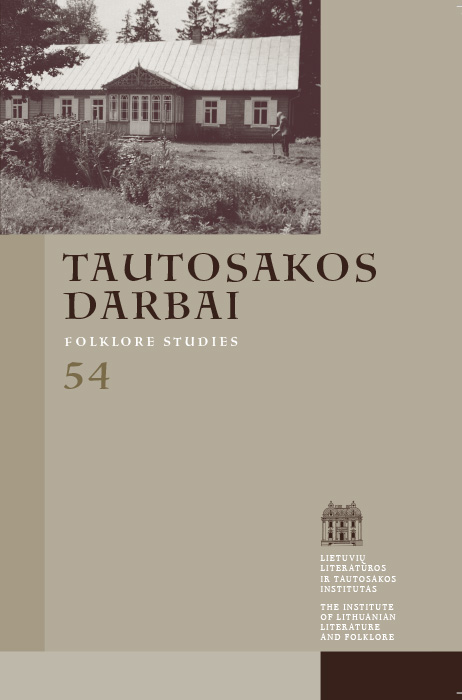Etnologinis avių vardų kontekstas
Santrauka
Straipsnis skirtas lietuvių avivardžių etnolingvistinei analizei, taikant analitinį aprašomąjį, lyginamąjį ir interpretacinį metodus. Svarbiausias tyrimo tikslas – atskleisti nominacijos ryšį su folkloriniu ir etnologiniu kontekstu. Orientuojantis į informantų nurodytus įvardijimo motyvus paaiškėjo, jog tradiciškai avių vardijimas grindžiamas somatine, etologine, vertinamąja bei priklausomybine motyvacija, o išlikusi maginė vardų funkcija rodo, kad onomastinę situaciją inspiruoja ne vien paties denotato išvaizda ar būdo ypatumai, bet ir emocinis (kartais pragmatiškas) žmogaus santykis su gyvūnu.
Atsisiuntimai
Nėra atsisiuntimų.
